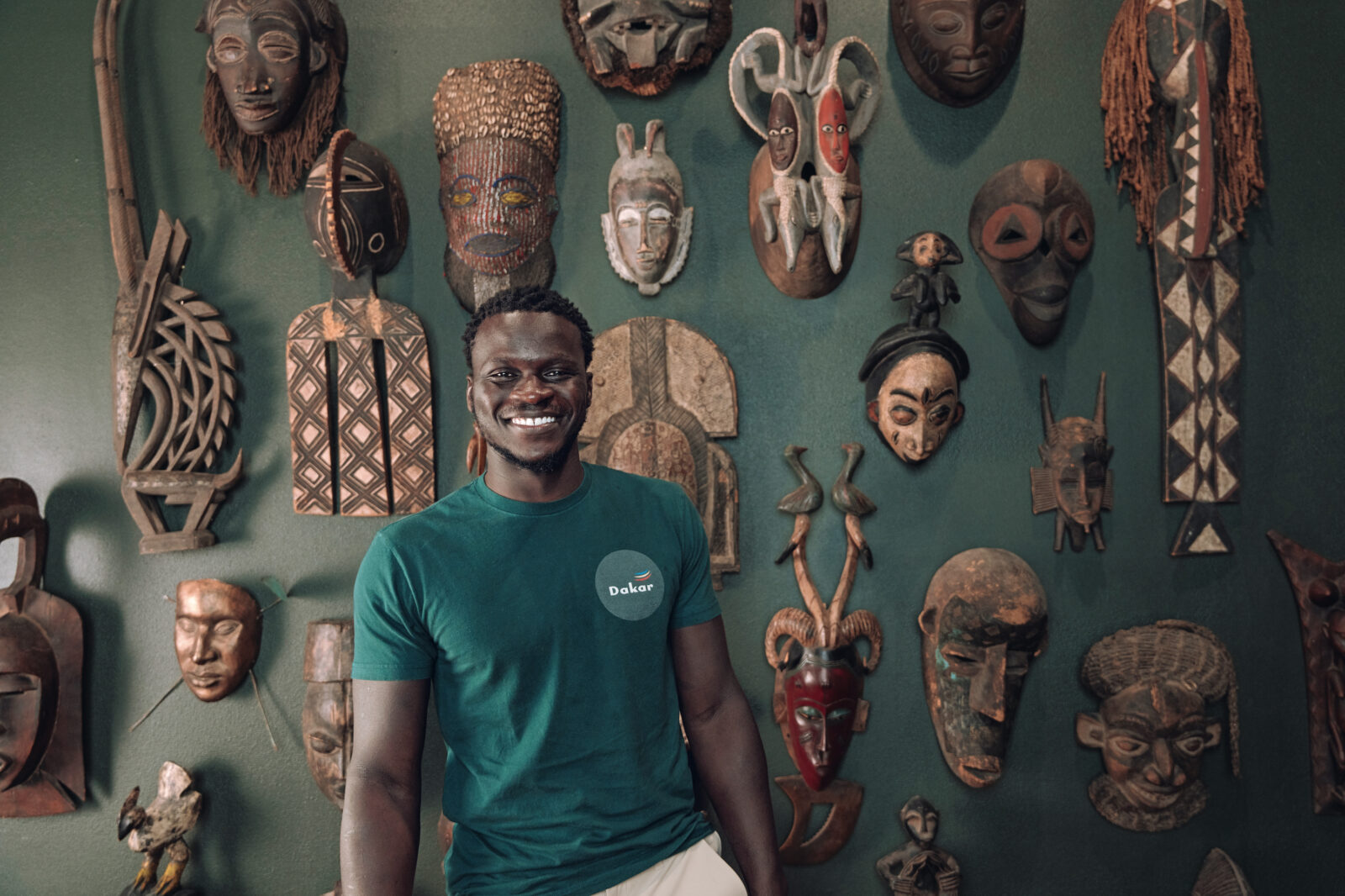Known for: Serigne Mbaye is the chef of Dakar NOLA, his new thirty-seat tasting-menu restaurant on Magazine Street. Introducing diners to a changing array of dishes such as gulf shrimp in a tamarind sauce and thiakry pie with pecans and mint tea ice cream, the James Beard Award nominee is putting the Crescent City back in touch with its Senegalese roots.
Childhood immersion: “I was born in Harlem, but when I was young, my parents sent me to a boarding school in Senegal [where they are from]. That’s one of the first places where I started to learn to cook Senegalese food. I stayed there until I was fifteen.”
Culinary genes: “My mother [Khady Kante] had a restaurant in Harlem [Touba Taif] that closed before I was born. That didn’t stop her from cooking. Many people came to our house for a taste of home, especially jollof rice.”
Going pro: “By the time I was eighteen, I was working in restaurants. I washed dishes for a year at the Harrison in New York City and gradually worked my way up. Everything was just a blur, and I wanted to learn everything.”
Formal education: “I went to the New England Culinary Institute in Vermont, and it was a culture shock for sure. But I was used to that. Everywhere I go I’m usually an outsider.”
His own path: “I did a pop-up restaurant for a couple of years pre-COVID, and people were digging my food. So I got a business partner [Effie Richardson] who believed in me. She’s a pediatric dentist and has Ghanian heritage. She understood my vision.”
Restaurant mission: “We cook to nurture the soul. That saying is on the back of the shirt worn by every cook in the restaurant. Every soul needs healing, and food is the best way to heal.”
Signature dish: “We have something on the menu called the Last Meal. Our [enslaved] ancestors from Senegambia were forced to eat black-eyed peas and palm oil as a way to fatten them up for the Middle Passage. A variation is the first meal we serve. It’s a reminder that without remembering the people before us, we can’t acknowledge the present and the future.”
A communal experience: “I don’t really call us a restaurant. I think of it as my mom’s throwing a dinner party and I’ve invited you over. Southern food was inspired by West Africa, but few give West Africa credit. Our ancestors didn’t eat fancy. They ate to get fulfilled. A white chef’s coat is not my culture. My people sat on the floor, and they ate together.”

